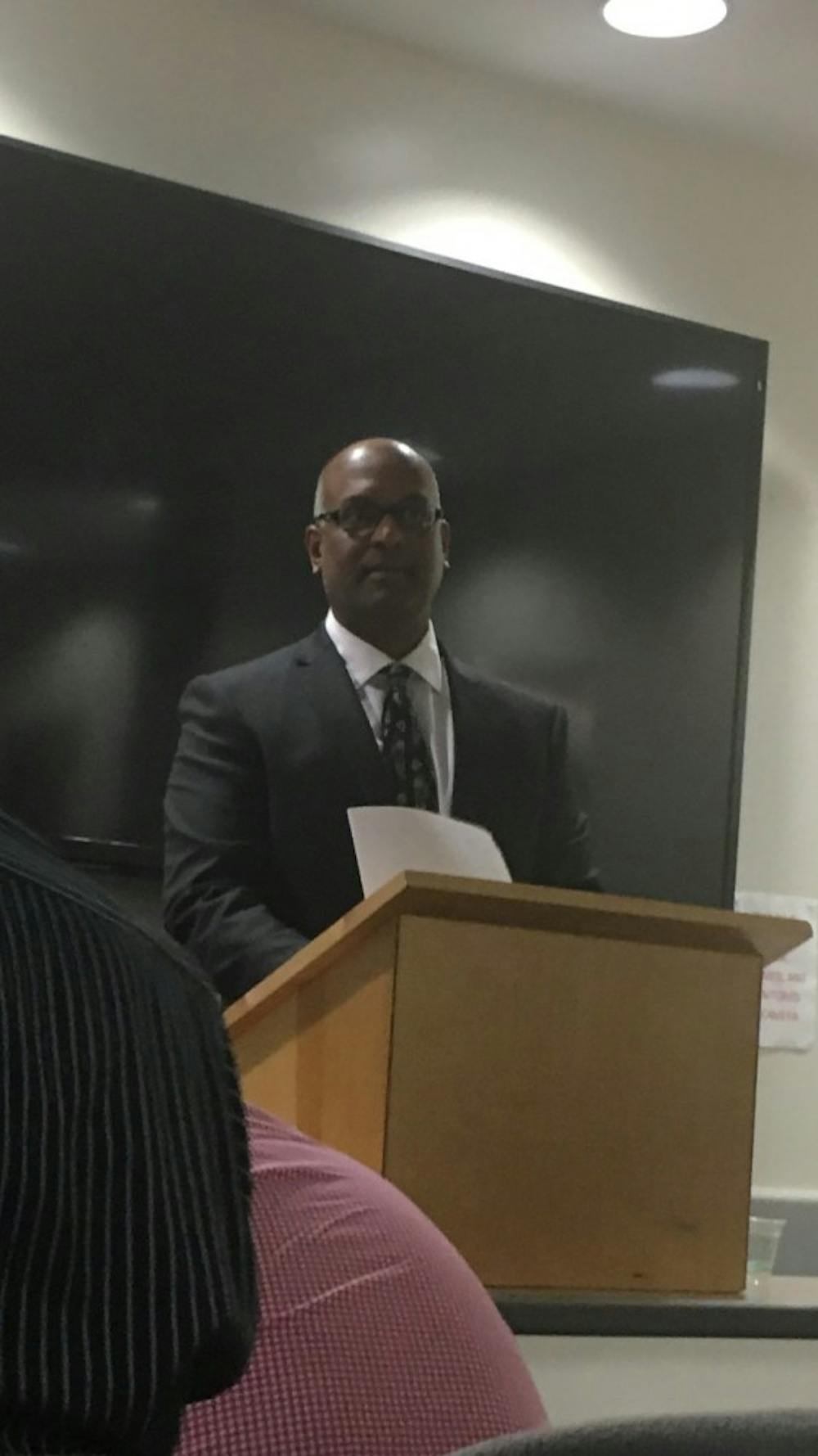Many attendees were left without a chair at the standing room only presentation of “Democratic Legitimacy and Coercively Enforced Borders” in the Mary Graydon Center on March 9. Michael James, a political theorist, was at AU to give a lecture primarily focused on his strong belief against closed international borders.
James has a doctorate from Duke University, and has studied contemporary legal theory, as well as law and cultural populism. He currently teaches classes at Bucknell University, where he is the chair of the political science department. He also published a book titled “Deliberative Democracy and the Plural Polity,” and regularly writes articles for journals such as the European Journal of Political Theory and The Journal of Politics.
The focus of James’ project involves the effectiveness of immigration policy, and from the start of his presentation, he went so far as to say that “immigration may be the issue in western American political philosophy.” This is because James said immigration to him is the most essential issue regarding justice and liberty that needs policy development.
James said that the existence of borders undermines the equality of opportunity, suggesting that in order to help facilitate international equality, an effort should be made towards opening international boundaries between nations.
“I would argue that the dominant strain of political theory is in favor of open borders,” he said.
“These coercive walls are illegitimate, because they have not been democratically justified,” he said.
James backed up these political assertions by presenting political philosopher Arash Abizadeh’s Democratic Theory Argument against border control of any nature. He is also against borders being closed unilaterally.
Abizadeh’s argument is that temporary asylum seekers are unfairly punished by borders operated in the way they currently are, and refugees and immigrants from poor illiberal states are the ones who end up suffering. These illiberal states, according to this philosophy are only partially democratic.
James concluded by saying that to be truly democratic, preventative borders should be taken down. Admittedly, James said there are a huge number of practical problems preventing the implementation of this idea as international policy, but he thinks it is important to consider nevertheless.
“The dominant strain of political theory is in favor of open borders,” James said.





